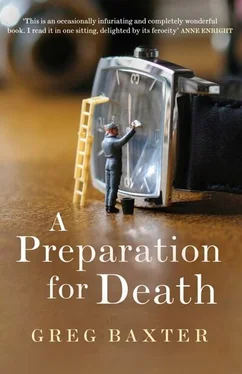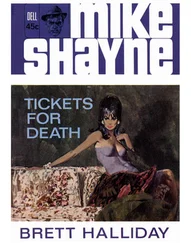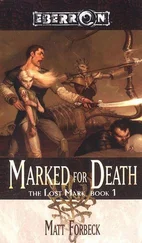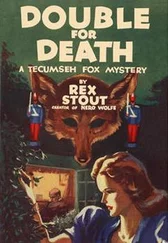Herbert’s father supported Hitler and the Nazis. Even though he was a doctor — like his father, and his father’s father — they were not the kind of people whose children had personal drivers. For most of my life, I had no idea what Herbert’s politics were. Maria had never discussed him in that way; perhaps she felt it was none of her business. She never seemed to think anything about the war was her business (a lot of Austrians suffer from this), and she never faced the crimes the Nazis committed, the genocide that rid Austria of the many great minds who built and modernized the city she adored. In the summer of 2003, when I went to Vienna for a month to research a novel I never wrote, I saw a photograph of Herbert in the mountains around Salzburg, taken before the war. There are, as always, the pretty girls with bows in their hair. Herbert has his shirt off and a kerchief tied around his neck. They are sitting in picnic tranquillity beneath a Nazi flag they have planted. The shot was taken from above, at a long distance, and below them a quiet green valley sprawls toward hills in the distance.
I inherited Herbert’s military keepsakes — his medals, his decorations (all of which incorporated swastikas), his uniform buttons. I was the only one of his grandsons who showed real interest in my Austrian heritage, and it was Maria’s decision to let me keep them. After my parents divorced and I moved with my mother from San Antonio to Conroe, just north of Houston, I used to march around the house wearing an amalgamation of these things and my father’s US Navy aviator’s jacket, hat, and officer’s ribbons.
When the Russians invaded Vienna, all the young women went out of their way to make themselves ugly. The stories they heard of Russian infantry had everyone in a state of delirious terror. They were raping all the girls and women and killing everything else: babies, boys, and old men. Only old and hideous women, so it went, were safe. Maria changed the names of her boys to Petrovich and Nikolai. When the Russians came, the soldiers, she said, raped her every day, several times a day. This is something I learned very late — during a telephone conversation in 2003 — though I had heard about the changing of the names, and many other stories, from an early age. The soldiers liked the boys’ names — perhaps they found the misuse of the patronymic for my uncle charming — and didn’t kill them. Eventually she and the boys fled the city. She used to tell a magnificent story about running down a long road out of Vienna with many other women and children. She had Peter in one arm and my father in the other, and explosions followed them. I have no context outside the immediacy of that image. I have no idea what road they were on. I don’t know if they were headed south or west. I see her, the boys, other people, trees, smoke. It’s like a scene from a movie — what have I experienced that would lend it authenticity?
A lot of people, she said, gave up. The fear paralysed them. Some women begged others to take their children. A lot of these people were captured rather than killed, she said, but the Russians left a lot of dead on that road.
She found refuge on a farm. This farm emerged naturally in her memory but is incongruous to me, now: why did no one else go there? Why was it safe, if they were being chased? Why did the Russians continue to pursue the Viennese outside the city, since from the sound of it the Nazi army was nowhere to be found? Was it, possibly, that the farm is another memory entirely, that somehow got entwined with the road? Is it possible that I have it all wrong — that the road came during the first wave of invasion, and the farm came only after the Americans arrived?
I intended to ask such questions — not only about the road and farm but about everything, especially Herbert — during that conversation in 2003. I had just returned from Vienna, and my interest in that past had been reignited by the photographs I’d seen of Herbert, by speaking nothing but German for a month, by a book about Hitler’s Vienna, by the city itself. But when she mentioned, almost as an aside, that like many young women she was raped by Russian soldiers, and when I asked her to repeat herself, she said, with a breeziness that made it seem unlikely she was exaggerating, Yes, hundreds of soldiers, hundreds of times , I was too embarrassed to continue the interview.
My cousin Fielding — Maria’s grandson by a different grandfather — told me recently that Maria has a boyfriend in the nursing home, but the man thinks he is a teenager, and they hold hands and whisper to each other. When Fielding went to visit her, the man told him: I like your daughter very much. Then he tried to sell himself as a suitor. Maria believes she still runs errands for Fielding’s parents. She does not know how long she’s been at the home — her presumption is about a week, though it has been more than a year — and she talks with pride about the fact that she stays busy, and drives her car all around the city. The most considerate thing to do is agree with her; otherwise she becomes distraught.
My stepmother tells me the home takes its residents for day trips. They board a bus and drive outside the city, under the impression they are headed somewhere, and look out the windows at the countryside, which, to many, surely, exists in a state of ceaseless evaporation. A few hours later they return, having not left the capsule of the bus.
It is autumn in Dublin, chilly and dark. I am sleeping with socks on. My Vespa is barely alive in the mornings, and seems to recoil at the sight of me. I have to wear a hat in the house to avoid headaches. I am trying to save money by not turning on the heat, but Elísabet is walking around in winter coats asking if there are any more blankets for her bed. She has been here several weeks and will leave before Christmas — my first housemate since Chicago, ten years ago. She is an Icelandic playwright, novelist, and performance artist. I don’t know what to make of her, but I like her. Very little she says makes any sense. She sleeps like a hibernating bear. She drinks a lot of milk. She went to an AA meeting in Malahide a few weeks ago, and now she is running the meetings. Everything that happens becomes one of her stories. A few days ago she lost her notebook, and now she is writing a novel in which a strange creature sets a character on a quest, but the creature does not know what the quest is, since it lost the notebook.
Elísabet — who is the kind of person who finds meaning in her dreams, in accidents, in the offhand comments of total strangers, and who believes tiny people live under rocks — is fascinated by Maria’s history, and wonders if her stoicism comes from a monumental coldness. Though this is not the Maria I know, it is of course possible. It might explain her relationship to the truth of the past, which she no longer has to face. She has escaped the guilt of complicity. Nobody can talk of Austrian grandparents who fell in love during the war without millions of dead Jews bringing it all back into perspective. Her suffering, I must remind myself, is nothing to anybody but us. Herbert’s death is nothing to anyone but us.
Often Elísabet and I discuss her as though she were dead. I have placed a black-and-white picture of Maria and Herbert on my dining-room table, and Elísabet says it gives the house a sense of mourning. Herbert is seated in a wicker rocking chair, in his officer’s uniform — grey trousers and jacket, black collar, white epaulettes — with one leg stretched out and the other bent. He is holding his left hand in his right hand on his lap. The top of his head is dressed in a white bandage. Maria is standing behind the chair, leaning forward, with her arms around Herbert’s chest. Her cheek is touching his head. She, too, holds her left hand in her right hand. Maria has high cheekbones and wide-set eyes. She has dark, shoulder-length hair that is pulled back from her face. They are smiling, but Herbert isn’t looking at the camera — he looks as though he’s just been told something mildly funny by a person standing to one side. The shadows behind them spill a long way, and there are no leaves on the little tree they are sitting under. I can’t tell anything from it. I can’t tell if they are happy or sad. The embrace seems formal and slightly posed. Surely he is leaving for the front again, and they are already married. She is probably pregnant, though she may not know it. The picture I have in the frame is not even a photograph. It is a granulated printout of a digital scan of the original, which was destroyed a few years ago by a flood in Texas.
Читать дальше












